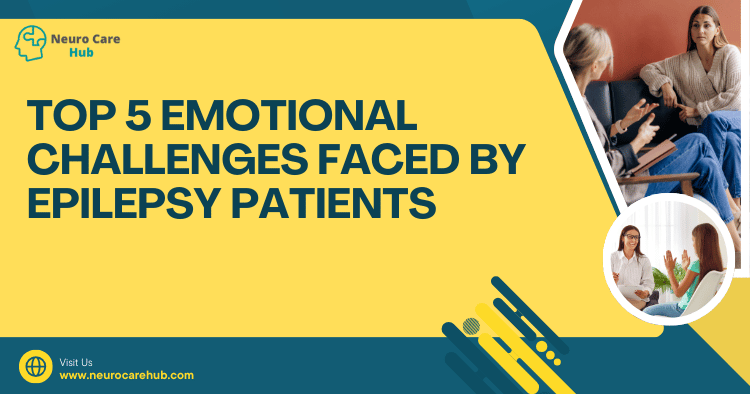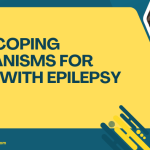Table of Contents
- Introduction: Understanding the Emotional Landscape of Epilepsy
- 1. Fear of Seizures
- 2. Stigma and Isolation
- 3. Anxiety and Depression
- 4. Impact on Relationships
- 5. Identity and Self-Esteem Issues
- Conclusion
- FAQs
Introduction: Understanding the Emotional Landscape of Epilepsy
Living with epilepsy is not just a medical condition; it’s an emotional journey that can affect every aspect of a person’s life. Patients often face unique emotional challenges that stem from their condition, leading to an array of feelings that can be difficult to navigate. In this article, we’ll explore the top five emotional challenges faced by epilepsy patients, offering insights and resources to help them cope. For a deeper understanding of neurological care, you can refer to Neuro Care: A Guide to Brain Health.
1. Fear of Seizures
“The unpredictability of seizures can create a significant emotional burden.”
The unpredictability of seizures can create a significant emotional burden. Many epilepsy patients live in constant fear of when their next seizure might occur, which can be debilitating. This fear often leads to avoidance behaviors, where patients shy away from certain activities, social situations, or even places they associate with previous seizures.
Coping Strategies:
- Education: Understanding the condition can reduce fear. Resources like the Epilepsy Foundation provide valuable information about seizure types and triggers.
- Mindfulness and Relaxation Techniques: Practices such as yoga and meditation can help manage anxiety and fear levels.
| Strategy | Description |
|---|---|
| Education | Learn about epilepsy and seizure management |
| Mindfulness Practices | Engage in relaxation techniques to ease anxiety |
2. Stigma and Isolation
“Stigma surrounding epilepsy can lead to feelings of isolation.”
Stigma surrounding epilepsy can lead to feelings of isolation. Many people misunderstand the condition, leading to misconceptions that can alienate patients from their peers. This stigma can manifest in social settings, workplaces, and even within families, causing individuals to withdraw and feel lonely.
Coping Strategies:
- Support Groups: Connecting with others who understand the condition can provide a sense of community. Check out Epilepsy Support Groups for resources.
- Advocacy: Engaging in advocacy work can empower patients and help combat stigma. For more on the importance of neuro care in modern medicine, see Top 5 Reasons Neuro Care is Essential in Modern Medicine.
| Stigma Types | Impact on Patients |
|---|---|
| Misunderstanding | Leads to isolation and awkward social interactions |
| Discrimination | Affects employment opportunities and relationships |
3. Anxiety and Depression
“Studies show that epilepsy patients are at a higher risk of developing anxiety and depression.”
Studies show that epilepsy patients are at a higher risk of developing anxiety and depression compared to the general population. The fear of seizures, combined with social stigma and isolation, can create a perfect storm for mental health issues. Recognizing symptoms early can lead to better management and treatment.
Coping Strategies:
- Therapy: Working with a mental health professional can help patients process their emotions and develop coping mechanisms.
- Medication: In some cases, medication may be necessary to manage anxiety and depression. Always consult a healthcare provider for advice. For more information on how caregivers can enhance neuro care, see Top 5 Ways Caregivers Enhance Neuro Care Effectiveness.
| Emotional Issue | Signs and Symptoms |
|---|---|
| Anxiety | Excessive worry, restlessness, trouble sleeping |
| Depression | Persistent sadness, loss of interest, fatigue |
4. Impact on Relationships
“Epilepsy can strain personal relationships, affecting everything from friendships to romantic partnerships.”
Epilepsy can strain personal relationships, affecting everything from friendships to romantic partnerships. The unpredictability of seizures can create anxiety for loved ones, and they may not know how to support the patient effectively. This dynamic can lead to misunderstandings and emotional distance.
Coping Strategies:
- Open Communication: Discussing feelings and concerns with loved ones can foster understanding.
- Educational Resources: Sharing information about epilepsy with friends and family can help them understand the condition better. For insights on how family support enhances neuro recovery, refer to Top 5 Ways Family Support Enhances Neuro Recovery.
| Relationship Type | Potential Challenges |
|---|---|
| Friendships | Fear of socializing, withdrawal from activities |
| Romantic Partnerships | Anxiety about potential seizures during intimate moments |
5. Identity and Self-Esteem Issues
“Living with epilepsy can profoundly affect a person’s self-image and identity.”
Living with epilepsy can profoundly affect a person’s self-image and identity. Patients may struggle with feelings of inadequacy or the perception that they are “different” from their peers. This can lead to a diminished sense of self-worth and difficulty in accepting one’s condition.
Coping Strategies:
- Self-Acceptance: Seeking support to embrace one’s identity can foster resilience.
- Positive Affirmations: Practicing self-affirmation can help rebuild self-esteem. For strategies on lifestyle changes to prevent neurological disorders, see Top 5 Lifestyle Changes to Prevent Neurological Disorders.
| Identity Challenge | Effects on Patients |
|---|---|
| Self-Perception | Struggles with feeling “normal” or accepted |
| Self-Esteem | Negative thoughts about abilities and worthiness |
Conclusion
The emotional challenges faced by epilepsy patients are profound and complex, impacting their quality of life in many ways. By understanding these challenges and implementing effective coping strategies, patients can work towards a more fulfilling life. Building a supportive network, seeking professional help, and educating oneself and others about epilepsy are all essential steps in navigating this journey. For further insights on the essential insights and tools in neuro care, check out Top 5 Essential Insights on Neuro Care You Need to Know.
FAQs
Q1: Can epilepsy affect mental health?
Yes, epilepsy is associated with a higher risk of anxiety and depression due to its unpredictable nature and the stigma surrounding the condition.
Q2: How can I support a loved one with epilepsy?
Educate yourself about the condition, be open to conversations about their feelings, and encourage them to engage in supportive communities.
Q3: Are there support groups for epilepsy patients?
Yes, many organizations, including the Epilepsy Foundation, offer support groups that provide a platform for sharing experiences and coping strategies.
Q4: What are some effective coping strategies for managing fear of seizures?
Education about the condition, mindfulness practices, and engaging in community support can be effective strategies.
Q5: How can I help reduce stigma surrounding epilepsy?
Advocating for awareness, sharing accurate information, and promoting understanding among peers can help combat stigma.
By addressing the emotional impact of epilepsy, we can foster a more inclusive and understanding environment for those affected. Remember, you are not alone, and there is support available.






